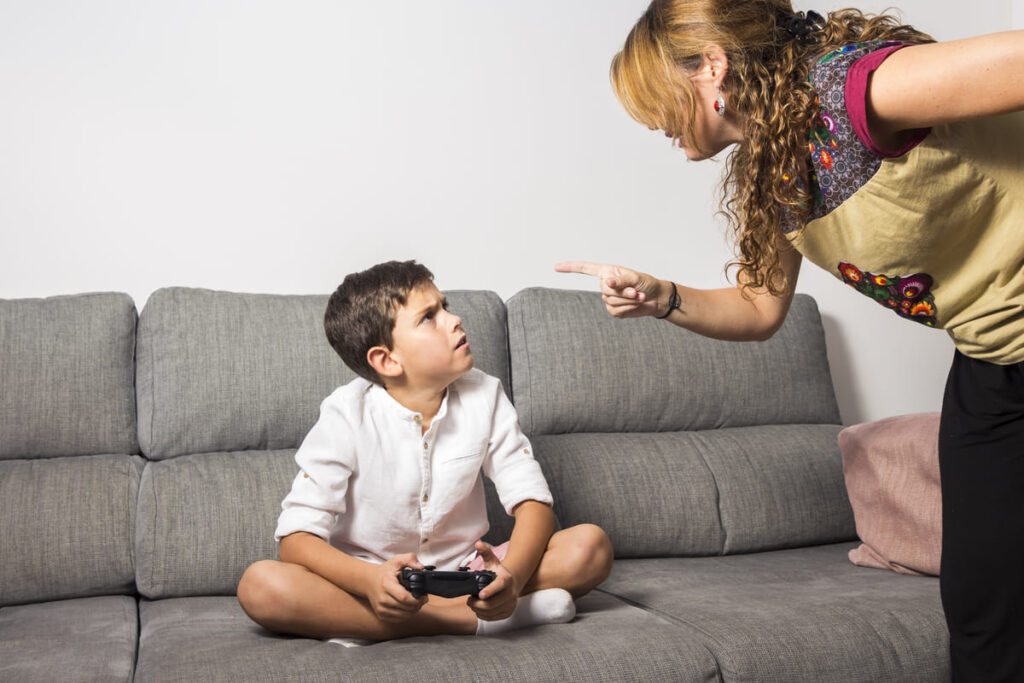10 Brutal Truths About Parenting in Your 40s and Beyond and How to Survive Them
Parenting in your 40s and beyond comes with its own unique challenges and rewards. You might find yourself balancing your kids’ needs with your own evolving priorities and energy levels in ways you didn’t expect earlier in life.
The reality is that parenting later in life requires a different kind of patience and perspective, shaped by your experiences and current lifestyle. It’s not just about raising a child—it’s about navigating the complexities of this stage of life while still being a hands-on parent.
Your energy levels aren’t what they used to be, and that’s okay.

You might notice your energy isn’t as high or constant as it was in your 20s or 30s. That’s normal and expected. Our bodies change with age, and your energy naturally shifts.
It’s not about pushing yourself to feel like you did before. Instead, focus on managing the energy you do have. Small changes like better sleep, stress control, and balanced nutrition can make a big difference.
Sometimes low energy comes from health issues like an underactive thyroid or chronic stress. Listening to your body and checking in with a doctor when needed helps you stay on top of things.
Accepting your limits doesn’t mean giving up. It’s about working smarter with your energy—prioritizing important moments and letting go of unnecessary pressure. You can still be present and active without burning out.
Sleep deprivation hits harder and takes longer to recover from

When you’re parenting in your 40s or beyond, you might notice that missing sleep feels tougher than it did when you were younger. Your body just doesn’t bounce back as quickly.
Sleep deprivation affects your focus, mood, and energy, but the recovery isn’t instant. It often takes days or even weeks to fully catch up on lost sleep, especially if you’ve been running low for a while.
That means a single rough night might need more than one good night’s rest to fix. Extended sleep loss requires extra recovery time, so don’t expect to snap back overnight.
You might find you feel the effects more deeply—like irritability or brain fog—and these symptoms can stick around longer. Your body’s slower recovery makes consistent sleep even more important now.
Balancing your own identity while being a parent is a constant challenge.

When you become a parent in your 40s or later, it can feel like your personal identity gets swallowed up by the demands of your kids. You’re expected to be present and engaged, but still, you want to hold on to who you are outside of that role.
It’s a tricky balance. Setting aside time for yourself isn’t selfish—it’s necessary. You have to protect that space where you can recharge and reconnect with your interests and values.
Boundaries help a lot here. Clear limits on your parenting time versus your personal time make it easier to keep your identity intact. It’s about small intentional choices, like keeping hobbies or spending time with friends.
You might find it harder than before, since energy isn’t the same as in your 20s or 30s. But focusing on your mental health keeps you strong for both your family and yourself.
At times, you’ll question if you’re doing enough for your kids or for you. That’s normal, and it’s part of figuring out how to be both a parent and your own person.
Teen years bring unexpected emotional rollercoasters and tough talks

When your kids hit their teen years, get ready for a lot of mood swings. One minute they’re sweet and talkative, and the next, they shut down or get moody for no clear reason. It can catch you off guard.
You’ll find yourself having conversations you never expected. Some talks will be awkward or uncomfortable, but they’re necessary. It’s how your teen learns to navigate feelings and make sense of the changes happening inside them.
Your role shifts, too. You’re no longer just the rule-maker; you’re also a sounding board. Sometimes, all your teen needs is someone who listens without judgment.
Remember, these emotional ups and downs are part of their growing process. It’s not always easy for you or them, but your patience and understanding can make a big difference.
You’ll sometimes be the tech support for both your kids and aging parents.

Being the go-to person for tech problems is part of the package when you’re caring for both kids and aging parents. Your kids might need help with school laptops or gaming consoles, while your parents could struggle with smartphones or video calls.
It can feel like you’re on call 24/7 for everything from resetting passwords to explaining apps. The challenge is balancing patience with these tech support moments without letting it take over your day.
You might even find yourself teaching your parents simple tech tricks to keep their independence. At the same time, you’re guiding your kids through the latest digital tools for school or social life.
Knowing when to ask for help or using easy tech solutions can save some sanity. Just remember, it’s okay not to have all the answers all the time.
Letting go and trusting your kids becomes harder with age, but necessary

As you get older, it can feel tougher to step back and give your kids the space they need. You might worry more because you’ve seen more of life’s challenges. It’s natural to want to hold on tighter, but that grip can actually hold them back.
Trusting your kids means accepting that they’ll make mistakes and handle things differently than you would. It’s about believing in their ability to grow even when you’re not in control. This shift doesn’t happen overnight—it takes practice to ease into letting go.
Starting small helps. Maybe let them make decisions in low-stakes situations first. Over time, you’ll get more comfortable with trusting their choices. Remember, stepping back allows them to build independence, which is essential for their future.
Kids will say hurtful things in their teen years; it’s not always personal.

When your teen lashes out with harsh words, it can sting. But remember, it’s often more about their feelings than about you.
Teens are figuring out their emotions and might not have the skills to express themselves kindly. Frustration, confusion, or anger can come out as hurtful comments.
You don’t have to take those words to heart. Instead, try to stay calm and understand what’s really going on beneath the surface.
Sometimes, the mean things they say are a way to test boundaries or express hurt they don’t know how to share otherwise.
If you respond with patience rather than anger, you help your teen learn healthier ways to communicate.
It’s tough, but holding onto this perspective can save you a lot of stress. Your relationship can survive these verbal storms if you don’t let hurt feelings take over.
Kids want to be heard and understood, even if their words don’t always show it.
Parenting after 40 means dealing with your own aging while raising young kids

When you become a parent after 40, you’re juggling the energy demands of young children with the natural signs of aging. You might notice that recovery from sleepless nights takes longer than it did in your 20s or 30s.
Your body might not bounce back as quickly from the physical demands of parenting. Playing on the floor, chasing toddlers, or carrying a baby can feel more tiring, which means you have to be mindful about self-care.
At the same time, you’re likely more experienced and patient compared to younger parents. Your life experiences can help you handle parenting challenges with a steadier mindset.
You might also find yourself more aware of your own health and the importance of modeling good habits for your kids. It’s a balance between managing your changing body and keeping up with the energy your young children need.
Plus, you may be thinking about your future more—both for yourself and your kids—which can make parenting feel like a bigger responsibility than it did when you were younger.
You might face anxiety about your kids growing more independent

You probably feel caught between wanting to protect your kids and knowing they need space to grow. It’s normal to worry about what might happen when you loosen control. Watching them take risks can be unsettling even if you understand it’s part of their development.
You might find yourself constantly double-checking or wanting to step in. That urge doesn’t just vanish because your kids are older. It shows you care, but it can also make giving them independence harder than you expected.
Remember, letting go doesn’t mean you stop being a good parent. It means you trust your kids to learn from their experiences—even if they stumble. It’s a tough balance between staying involved and giving them the room they need to figure things out on their own.
Trying to maintain your passions outside of parenting is vital for your sanity

Parenting in your 40s and beyond can feel overwhelming, but holding on to your passions is important. You’re more than just a parent, and investing time in what excites you helps keep your sense of self alive.
Whether it’s a hobby, a sport, or a creative outlet, making space for these activities gives you a break. These moments recharge you and prevent parenting from becoming your entire identity.
Your kids will notice when you’re engaged in things you love. It shows them that life isn’t just about responsibilities—it’s about joy and growth too. Plus, nurturing your interests can help reduce stress and keep you balanced amid all the demands.
Don’t feel guilty for taking time for yourself. Pursuing your passions isn’t selfish; it’s necessary for your well-being, and ultimately, it benefits your family when you’re feeling more grounded.







